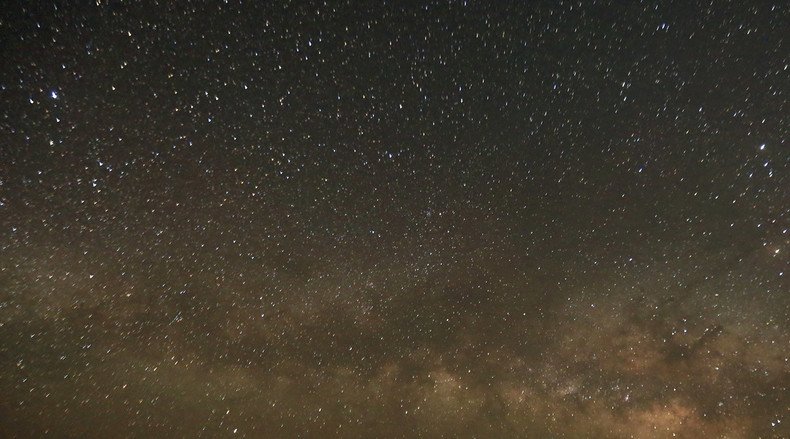'Fast' & vast: China building world's largest 500-meter radio telescope

China is assembling what has been hailed as the world's largest radio telescope, state media reported. The 500-meter tool will boast a dish the size of 30 football pitches, overtaking Puerto Rico's Arecibo Observatory, “only” 305 meters in diameter.
With a perimeter of about 1.6km, it will take up to 40 minutes to walk around the single-aperture spherical telescope, which is called "FAST". It will be constructed deep in the mountains of the southwestern Guizhou Province, built on a naturally formed bowl-shaped valley, Xinhua reports.
"There are three hills about 500 meters away from one another, creating a valley that is perfect to support the telescope," Sun Caihong, chief engineer of FAST's construction, told the news agency.
China may complete construction of the world's largest single-aperture radio telescope in 2016 http://t.co/Rfbiy0Zj5Vpic.twitter.com/X18eY4qhdW
— People's Daily,China (@PDChina) July 24, 2015The construction of the highly sensitive telescope began in March 2011 and is due to be completed next year. On Thursday, technicians already began attaching 4,450 triangular-shaped panels to the telescope's reflector. To overlook the whole reflector, visitors will reportedly have to climb up to the top of one of the hills. An observation platform is currently said to be under construction.
The chief scientist of the FAST project, a Chinese astronomer Nan Rendong, explained that the bigger the dish is, the more powerful the telescope.
"A radio telescope is like a sensitive ear, listening to dustinguish meaningful radio messages from white noise in the universe. It is like identifying the sound of cicadas in a thunderstorm," the scientist said.
First of 4,600 panels for China's FAST telescope shipped, says state media. Will be world's largest radio telescope pic.twitter.com/Yt9FTZIE1d
— Andrew Jones (@AJ_FI) 21 июля 2015The so-called Karst topography in the surrounding landscape is ideal for draining rainwater underground and protecting the reflector, according to Chinese scientists, adding that the surrounding area is characterized by a certain "radio silence."
The dish will shift to receive radio signals from different angles.
"Panels can change their positions through connected wires and parallel robots. We can control their position with an accuracy of 1 mm," Zheng Yuanpeng, chief engineer of the telescope's panel project, told Xinhua.
It's hoped that the new telescope will boost Chinese scientists' capacity to observe outer space.
Wu Xiangping, director-general of the Chinese Astronomical Society, lamented that for years local scientists had to work on "second hand" data collected by other researchers.
"Having a more sensitive telescope, we can receive weaker and more distant radio messages. It will help us to search for intelligent life outside the galaxy and explore the origins of the universe," Wu said.
READ MORE: Hunt for alien life comes with great responsibility – investor of Hawking-backed project to RT
Earlier this week, it was reported that Russian internet billionaire Yuri Milner will be funding a project, backed by Stephen Hawking, to scan the skies in the search for alien life. Two of the world’s largest telescopes (in West Virginia and in New South Wales) will be used during the epic hunt.
“I think it’s an important project for the whole humanity. We now have the technology, we have the capability, we have the software and hardware to really try to get to the answer to this pretty fundamental question: are we alone in the universe? And I think in the next 10 years we will be able to make significant progress, which in order of magnitude more significant than in the last 55 years,” Milner, whose background is physics, told RT on Thursday.













